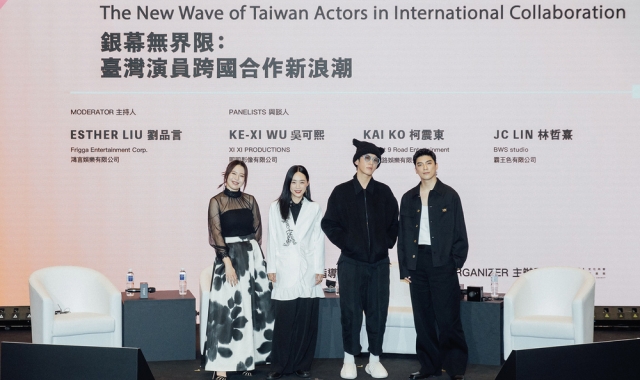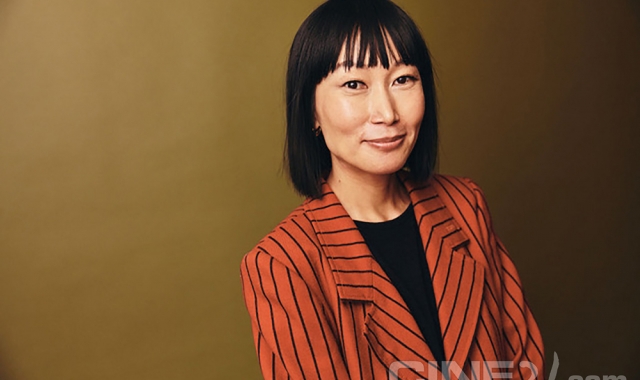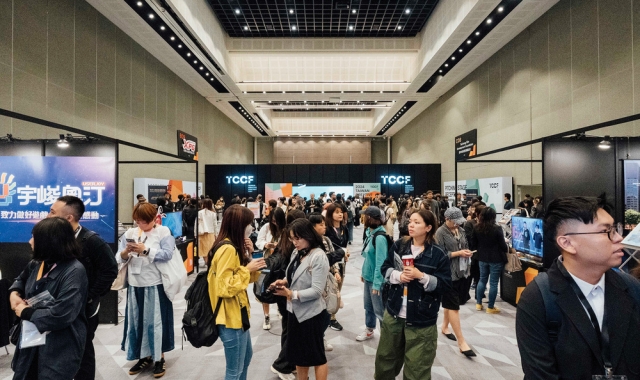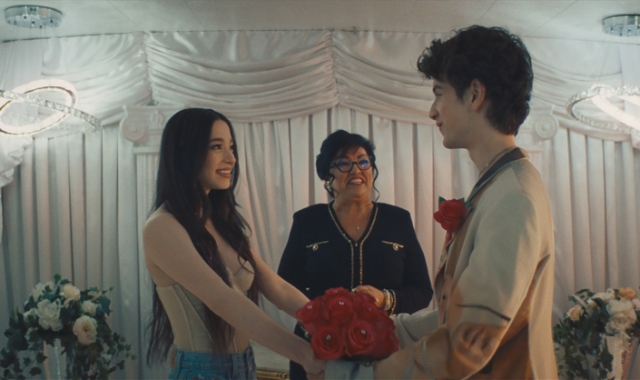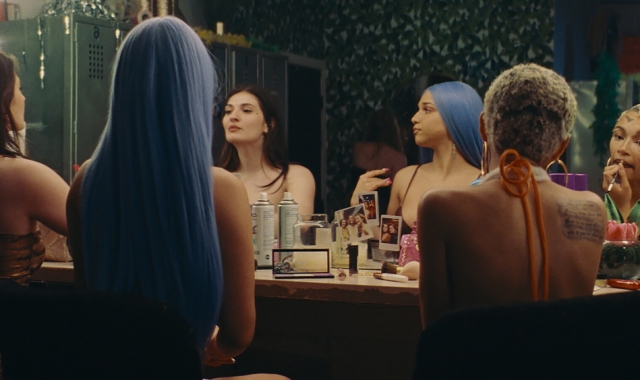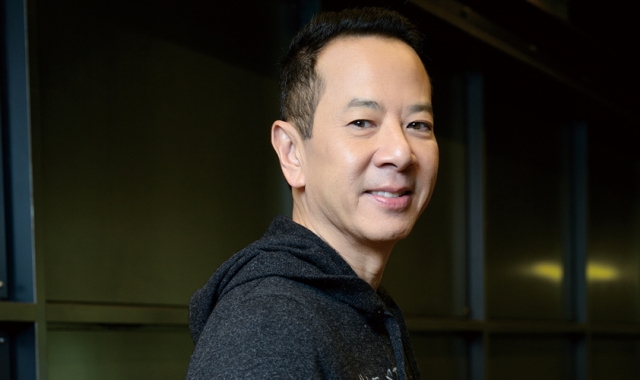
올해 칸영화제에서 상영된 일본영화라고는 인기 많은 오다기리 조가 출연하고 니시카와 미와 감독이 연출한 살인미스터리 장편 <유레루> 한편밖에 없었다. 감독주간 사이드바에 선정된 이 영화는 영화제 공식선정 목록 발표보다 뒤늦게 발표됐다. 한주 동안, 최근 몇년 만에 처음으로 칸에 단 한편의 일본영화도 가지 못한 것처럼 보였다.
일본 영화업계가 자신들의 영화를 보는 칸의 시각에 혼란해하고 당황하게 된 것은 올해가 연속 2년째다. 2005년, 업계 밖에서 비주류로 활동하던 감독들이 만들었던 두편의 영화가 칸의 주요 섹션에서 레드 카펫을 밟게 됐다. 널리 비판받았던 이 두 작품은 스즈키 세이준 감독의 장난스러운 <오페레타 너구리 저택>과 고바야시 마사히로 감독의 <배싱>이었다. 두 감독은 전에는 종종 독자적인 배급에 기대어 자신들의 영화를 걸 국내 극장을 찾기 위해 힘들여 싸워왔던 이들이다.
국내에서나 해외에서나 거의 옹호자를 찾아볼 수 없었던 <배싱>은 그럼에도 불구하고 지난해 경쟁 섹션에서 논쟁을 불러일으킨 초청을 받을 만한 영화였다. 고바야시 감독은 마치 일본영화의 김기덕 감독처럼 중산층 업계 속에서 활동하며 사회에서 버려진 이들에 대한 이야기를 선심 쓰지 않으면서 할 수 있는 노동자 계급 감독이다. <배싱>은 해외에 머물면서 일본에 치욕을 불러일으킨다고 박해받은 여자에 대한 이야기다. 칸에서 고바야시 감독은 우스갯소리로 자기가 도쿄로 돌아가면 유사한 대우를 받을 거라 했다.
올해 일본영화가 영화제의 영광스러운 뤼미에르 극장 앞에 깔려 있는 레드 카펫에서 제외된 반면 일본 배우들은 그렇지 않았다. 경쟁부문의 알레한드로 곤잘레스 이냐리투 감독의 <바벨>에는 아버지와 반항적인 청각장애인 딸로 각각 야쿠쇼 고지와 기쿠치 린코가 출연했다. 영화는 여러 이야기로 구성되어 있어 또 다른 이야기에는 할리우드 스타 브래드 피트와 케이트 블란쳇이 나오기도 한다. 경쟁 밖 공식부문에는 수차오핀 감독의 초자연적 스릴러 <실크>에 에구치 요스케가 주요 배역으로 출연하기도 했다.
거의 10년 만에 처음으로 배우 아사노 다다노부가 크루아제트 거리에서 보이지 않은 것은 매우 상징적인 일이다. 돌이켜보면 구로사와 기요시의 <밝은 미래>(2003년 칸)는 자기 세대의 대표적인 일본 배우가 오다기리 조에게 바통을 넘겨준 영화인 셈이었다- 아사노가 조역으로 효과적인 연기를 보여줬던 영화였다. 오다기리는 중국의 대스타 장쯔이의 상대역으로 <오페레타 너구리 저택>에도 출연했다. 미국에서 연기를 공부한 오다기리는 스스로 국제적인 (심지어는 외국의) 배우로 여기고 있는 듯, 이름을 외래어 표기체인 가타카나로 쓴다.
지난주 이 칼럼에 언급되기도 했던 칸영화제의 아시아영화 프로그래밍 미숙의 문제도 있긴 하지만, 칸에서 일본영화가 보이지 않는 것은 일본 업계 내의 탓이 크다. 이전 세대가 홍콩영화에 보여줬던 것처럼 새로운 세대의 국제평론가나 학자들, 영화 팬들이 좀더 접근하기 쉬운 한국영화에 오히려 눈을 돌리면서 일본영화는 세계 영화사 밖으로 밀려날 위험에 처해 있다. 일본 제작자들은 소규모의 영화제에서 감독의 명성을 쌓기를 거부하고 베를린, 칸, 베니스에만 치중해왔고, 이제 그 결과가 드러나고 있는 것이다. 55년 전 구로사와 아키라의 <라쇼몽>이 베니스영화제에서 최고상을 수상하면서 일본영화는 세계 무대에 발을 디뎠다. 이번 베니스영화제는 풍성한 아시아영화 수확 속에서 선택할 여지가 있을 것이다. 그렇지만 중국어권 영화들이 지배적일 것 같아 보인다. 중국, 홍콩, 말레이시아, 대만에서 주목받는 영화들뿐만 아니라 황금사자가 있는 경쟁섹션 자리를 다툴 한국의 작품도 있다. 그러나 현재 레이더망에 걸리는 일본영화에 대한 흥분된 소문은 전혀 찾아볼 수 없다.
Japanese cinema is represented at Cannes 2006 by just one feature film, murder-mystery Sway by Nishikawa Miwa starring heartthrob Odagiri Joe. Selected in the Directors' Fortnight sidebar, the film's inclusion was announced later than the entries in the festival's Official Selection. For about a week, it looked as if there might be no single Japanese feature at Cannes for the first time in recent history.
It's the second year in a row that the Japanese film industry has been confused and frustrated by Cannes' perspective on their national cinema. In 2005, two widely derided films directed by industry outsiders were selected to grace the red carpet in the festival's main sections, Suzuki Seijun's playful operetta Princess Racoon and Kobayashi Masahiro's Bashing. Both directors have previously struggled to find domestic theaters for their films, sometimes relying on self-distribution.
While it found few supporters at home or abroad, Bashing deserved its controversial slot in last year's Competition. Director Kobayashi is the Kim Ki-duk of Japanese cinema, a working-class director in a middle-class industry who can tell stories about outcast members of society without patronising his subjects. Bashing is about a woman persecuted for bringing shame to Japan while overseas; in Cannes, Kobayashi joked that he might face similar treatment on his return to Tokyo.
If this year Japanese films were excluded from the red carpet that leads up the steps of the festival's glorious Lumiere theater, Japanese actors were not. In Competition, Alejandro Gonzalez Inarritu's Babel stars Yakusho Koji and Kikuchi Rinko as a father and his rebellious deaf daughter in a multi-story narrative alongside Hollywood stars Brad Pitt and Cate Blanchett. Out of Competition, Su Chao-pin's supernatural thriller Silk stars Eguchi Yosuke in a headline role.
Symbolically, for the first time in almost a decade, actor Asano Tadanobu was absent from the Croisette. In retrospect, Kurosawa Kiyoshi's Bright Future (Cannes 2003) represented something of a handing over of the iconic-Japanese-actor-of-his-generation baton to Odagiri Joe, a film in which Asano effectively played a supporting role. Odagiri also stars in Princess Raccoon opposite Chinese superstar Zhang Ziyi. Odagiri, who studied acting in America, writes his name in katakana, an alphabet for foreign words, as if he considers himself an international (or even foreign) actor.
Despite Cannes' problems in getting to grips with Asian cinema, something this column touched on last week, much of the blame for the absence of Japanese films lies with its own film industry. Its cinema is in danger of falling outside of world film history as a new generation of international critics, academics and fans look instead to more accessible Korean cinema, just as a previous generation looked to Hong Kong. Japanese producers have prioritised Berlin, Cannes and Venice, refusing to build a director's reputation in smaller festivals, and are now reaping the result.
55 years ago, Kurosawa Akira's Rashomon won the top prize at the Venice Film Festival launching Japanese cinema onto the world stage. This year's edition of the Italian festival will have a bumper crop of Asian titles to choose from, but Chinese-language films are likely to dominate. As well as high-profile films from China, Hong Kong, Malaysia and Taiwan, there are also contenders from South Korea vying for a slot in the competition for the Golden Lion. For the moment, however, there are no buzz titles from Japan on the radar.
